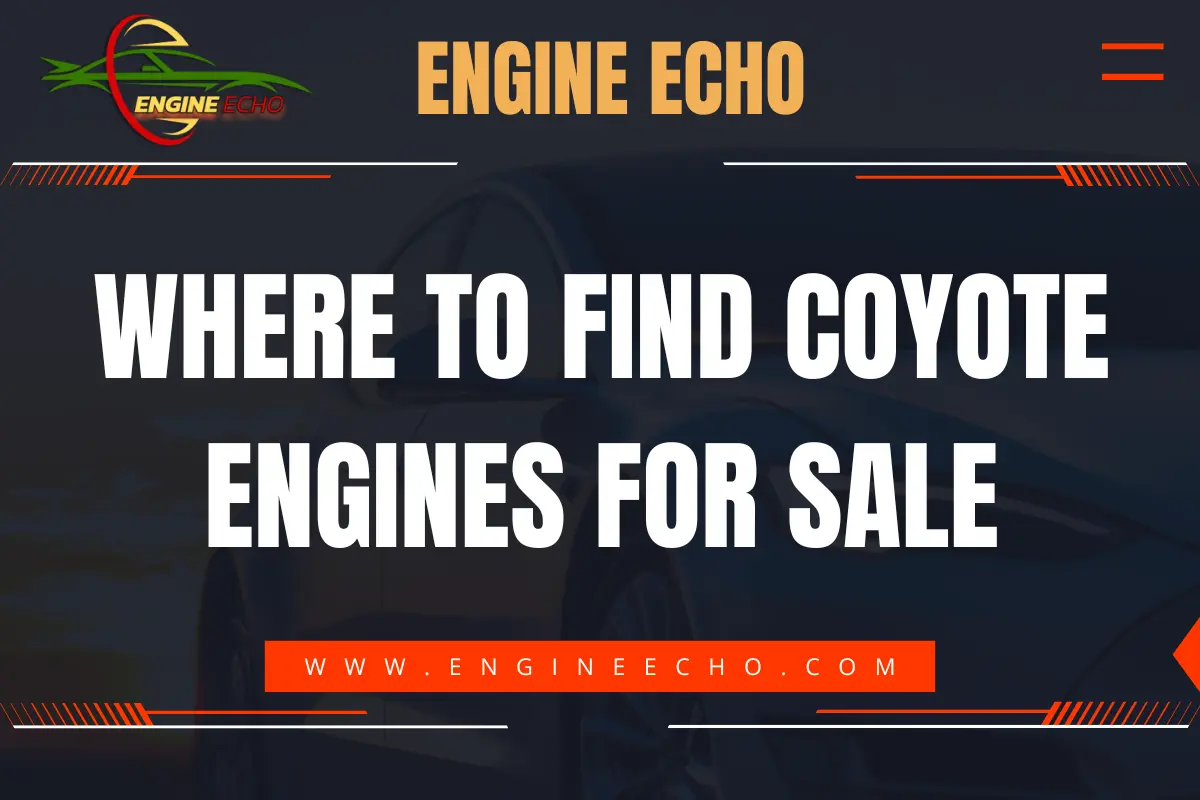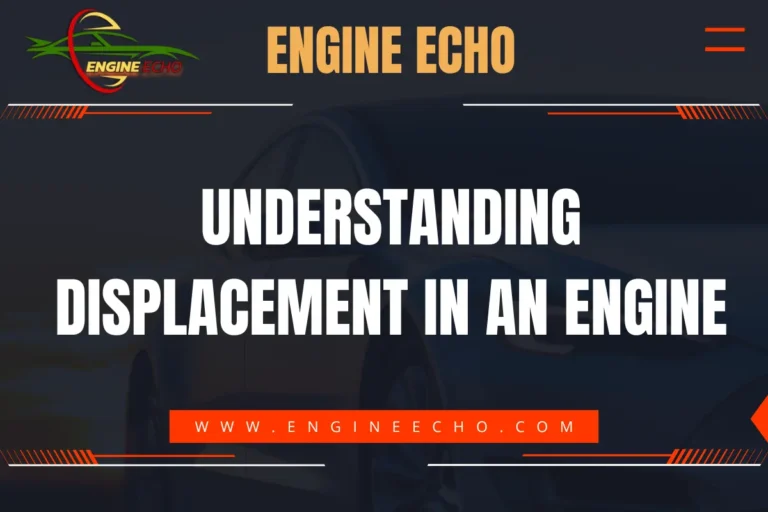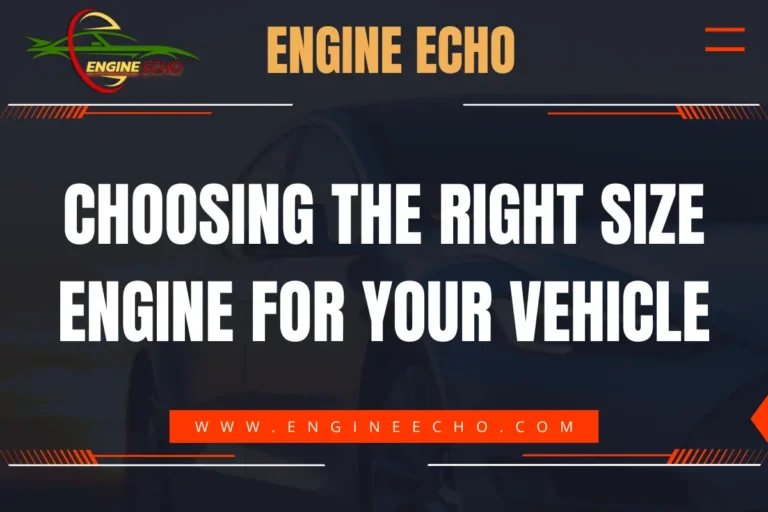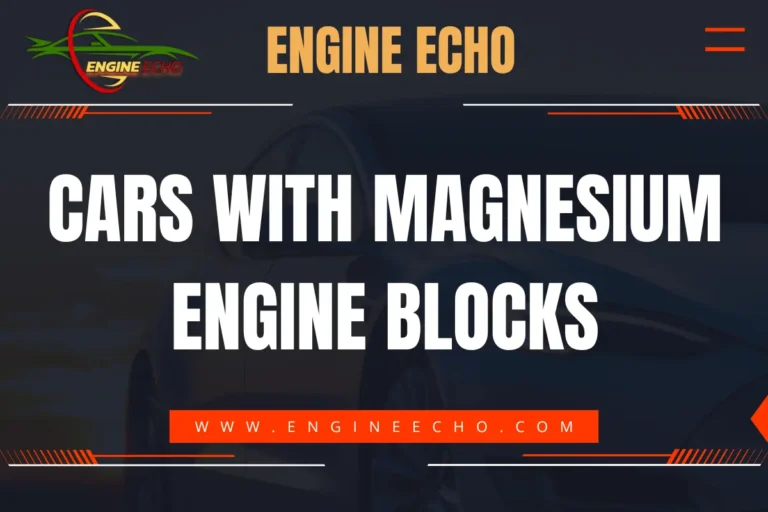Where to Find Coyote Engines for Sale

Key Takeaways:
- Coyote engines can be found through various sources, including online marketplaces, local sellers, and Ford-authorized retailers.
- When buying Coyote engines, it’s crucial to compare new, used, and remanufactured options based on price, availability, and condition.
- Ford dealers and authorized retailers provide reliable sources for purchasing new engines with warranty coverage.
- Remanufactured Coyote engines offer a budget-friendly alternative without compromising performance or reliability.
- Before purchasing, it’s important to inspect the engine’s condition, verify paperwork, and ensure compatibility with your vehicle.
Introduction
The Coyote engine is a legend, no doubt about it. If you’re like me, you probably know exactly why it’s in such high demand—power, reliability, and the kind of flexibility that makes it a favorite among car nuts and tuners. Having spent plenty of time tinkering with engines, I can tell you there’s nothing quite like hearing a Coyote engine roar to life in your project car. In this article, I’ll walk you through the best places to find Coyote engines for sale, along with a few tips I’ve picked up along the way.
1. Overview of the Coyote Engine
History and Popularity
When Ford dropped the Coyote engine back in 2011, I was hooked right away. It had the kind of power and reliability that every gearhead dreams about. Over the years, this engine has powered some of Ford’s most iconic vehicles, like the Mustang GT and F-150, making it the go-to option for enthusiasts looking to boost performance.
Technical Specs
- Horsepower: 412-480 HP, depending on the year and version.
- Torque: 390-420 lb-ft.
- Engine Capacity: 5.0L V8—pure power in every rev.
2. Online Marketplaces for Coyote Engines
eBay Motors
eBay Motors has been a trusty source for me more than once when I’ve been hunting for a Coyote engine. I remember scoring a solid deal on an engine for a project car. It was a bit of a gamble, but careful vetting and using PayPal’s buyer protection gave me peace of mind. One thing’s for sure: do your homework on sellers here—check their ratings, ask for detailed photos, and make sure everything adds up.
- Pros: Huge selection, competitive pricing, and solid buyer protection.
- Cons: You have to be cautious; there’s always a risk of misrepresentation.
Craigslist
Craigslist can be hit or miss when it comes to finding a Coyote engine locally. I’ve had some luck finding local sellers, but you really need to stay sharp and look for any red flags. Meeting sellers in person gives you the chance to inspect the engine before handing over your cash, which is a big plus.
- Pros: You can inspect the engine in person and negotiate directly.
- Cons: No buyer protection, so be extra careful.
Facebook Marketplace
Facebook Marketplace is another great option, especially if you’re looking to connect with local sellers. It’s user-friendly, and I’ve found that it’s easy to negotiate directly with people, often leading to better deals than you’d get through larger platforms.
Specialty Forums and Websites
If you’re deep into the car community like I am, you’ve probably checked out enthusiast forums. I’ve seen some great Coyote engines pop up on Mustang forums and other niche sites. The sellers here tend to know their stuff, and you can usually trust the details they provide.
3. Buying from Ford Dealers and Authorized Retailers
Ford Performance Parts
If you’re looking for the ultimate peace of mind, buying a new Coyote engine directly from Ford Performance or one of their authorized retailers is the way to go. It’s not the cheapest option, but the warranty and reliability you get are worth every penny, especially if you’re building something meant to last.
- Pros: Warranty coverage and top-notch reliability.
- Cons: The price tag is higher than used or remanufactured options, but worth it for long-term projects.
Authorized Dealers
I’ve had good experiences buying parts from authorized dealers—they offer financing options, extended warranties, and usually top-tier customer service. This route is a great option if you’re not looking to roll the dice on a used engine.
4. Used vs. New Coyote Engines: What to Consider
Cost Comparison
- New Engines: These will generally set you back anywhere from $7,500 to $10,000.
- Used Engines: Depending on the mileage and condition, expect to pay between $3,000 and $7,000.
Condition and Longevity
I’ve bought both new and used engines over the years, and while new engines obviously offer more peace of mind, I’ve snagged some great deals on used ones. The key is checking the mileage and service history. If it’s well-maintained, a used engine can still give you plenty of life.
Warranty and Support
New engines come with that sweet warranty, but with used ones, you’re often left on your own. I’d always ask the seller about any guarantees, especially if the engine’s clocking higher mileage.
5. Remanufactured Coyote Engines: A Budget-Friendly Option
What Are Remanufactured Engines?
Remanufactured engines are an awesome choice if you’re on a tighter budget but still want reliability. Essentially, these engines are rebuilt to meet factory standards. I’ve gone this route a few times, and the cost savings are significant without sacrificing much in the way of performance.
Benefits of Remanufactured Engines
- Cost Savings: They’re typically priced between $4,000 and $6,000.
- Performance: In my experience, they perform just as well as new engines.
- Reliability: If you’re buying from a trusted seller, remanufactured engines can last just as long as new ones.
Where to Buy
Plenty of third-party shops specialize in remanufactured engines. Make sure the seller is reputable and offers a decent warranty—that’s key to ensuring you’re getting a quality rebuild.
6. What to Look for When Buying a Coyote Engine
Inspecting the Engine
First thing I do when checking an engine? I take a good look at the block. Any cracks or signs of wear, and it’s a hard pass from me. Don’t be afraid to get hands-on and ask the seller tough questions—it’s your money on the line, after all.
Paperwork and Documentation
I always make sure to ask for service records and verify the engine’s history. One time, checking the paperwork saved me from buying an engine that had been in a wreck—dodged a bullet there!
Shipping and Installation Considerations
Shipping can add up, and it’s easy to forget about. Make sure to factor that into your budget, especially if the engine is coming from across the country. Oh, and double-check that it’s compatible with your car before you click ‘buy.’
7. Comparing Prices Across Different Platforms
Price Ranges
- New Engines: $7,500-$10,000.
- Used Engines: $3,000-$7,000.
- Remanufactured Engines: $4,000-$6,000.
Shipping Costs
Shipping’s one of those hidden costs that can sneak up on you—expect anywhere from $200 to $500, depending on how far the engine’s traveling. Always ask about shipping fees before sealing the deal.
Negotiation Tips
Don’t be afraid to negotiate. I’ve saved a few hundred bucks just by asking sellers for a little wiggle room, especially on platforms like Craigslist and Facebook Marketplace.
8. Tips for Avoiding Scams
Red Flags in Listings
If the price seems too good to be true, it probably is. I’ve seen a few listings that looked tempting, but the lack of details or poor communication from the seller was a dead giveaway that something wasn’t right.
Safe Payment Methods
I’ve got one rule when it comes to payments: stick to platforms like PayPal that have your back. If something goes sideways, at least you’ve got a way to dispute it.
How to Use Buyer Protection
Platforms like eBay offer buyer protection, and I’ve used it before when an engine wasn’t as advertised. The process was pretty smooth, and I got my money back with no hassle.
9. Popular Models That Use the Coyote Engine
Ford Mustang GT
The Coyote engine made its debut in the Mustang GT, and it transformed an already iconic car into a powerhouse. If you’re a Mustang fan, you know exactly what I’m talking about.
Ford F-150
The Coyote also powers the F-150, which makes it one of my favorite trucks for both power and reliability. It’s a workhorse that doesn’t quit.
Aftermarket Builds
Whether you’re restoring a classic muscle car or building a custom hot rod, the Coyote engine is one of the best swaps you can do. I’ve seen some jaw-dropping builds thanks to this engine’s versatility.
10. Case Study: Buying a Coyote Engine Online
Real-Life Example
A few years ago, I bought a used Coyote engine from eBay. I asked for detailed photos, verified the seller’s credentials, and even negotiated the price down by a few hundred bucks. The engine arrived as described, and after installation, it ran like a dream.
Lessons Learned
Take your time, ask the right questions, and always verify the seller’s info before committing. It saved me from some potentially costly mistakes.
11. Warranty and Return Policies
New Engines
New engines from Ford or authorized dealers typically come with a solid warranty, and from my experience, it’s worth paying extra for that peace of mind.
Used Engines
Warranties on used engines are rare, but some sellers offer short-term guarantees. Make sure you’re crystal clear on the terms before pulling the trigger.
Return and Refund Processes
Check the return policies for each platform. I’ve seen some sellers offer returns on faulty engines, but it’s best to confirm this before finalizing the deal.
Conclusion
Hunting down the perfect Coyote engine for your build can feel like a lot, but whether you’re after new, used, or remanufactured, there are some solid options out there if you know where to look. Take your time, do your research, and don’t hesitate to ask for advice from the community. Trust me, once that Coyote engine is up and running, you’ll be glad you put in the effort.
Frequently Asked Questions (FAQs)
Q1: What’s the average cost of a new Coyote engine?
A: A new Coyote engine typically costs between $7,500 and $10,000, depending on the seller.
Q2: Can I trust buying a used engine online?
A: Yes, as long as you carefully vet the seller, ask for documentation, and use a platform that offers buyer protection.
Q3: What’s the difference between a remanufactured and used engine?
A: A remanufactured engine has been rebuilt to factory standards, whereas a used engine is sold as-is, potentially without refurbishment.
Q4: What cars commonly use the Coyote engine?
A: The Ford Mustang GT and F-150 are the most common vehicles that use the Coyote engine, but it’s also a popular swap for custom builds.
Q5: Should I buy a Coyote engine with high mileage?
A: It’s best to aim for lower mileage if possible, but if an engine has been well-maintained and comes with service records, high mileage engines can still be a good buy.
Thanks for checking out this article on EngineEcho.com! Hope you found this article: "Where to Find Coyote Engines for Sale" helpful! If you liked it and want to dive into more car engine topics, head over to our homepage. There's always something new to discover in the world of engines. Enjoy your reading journey!
Check out our previous article: Best Synthetic Engine Oils for Your Car






